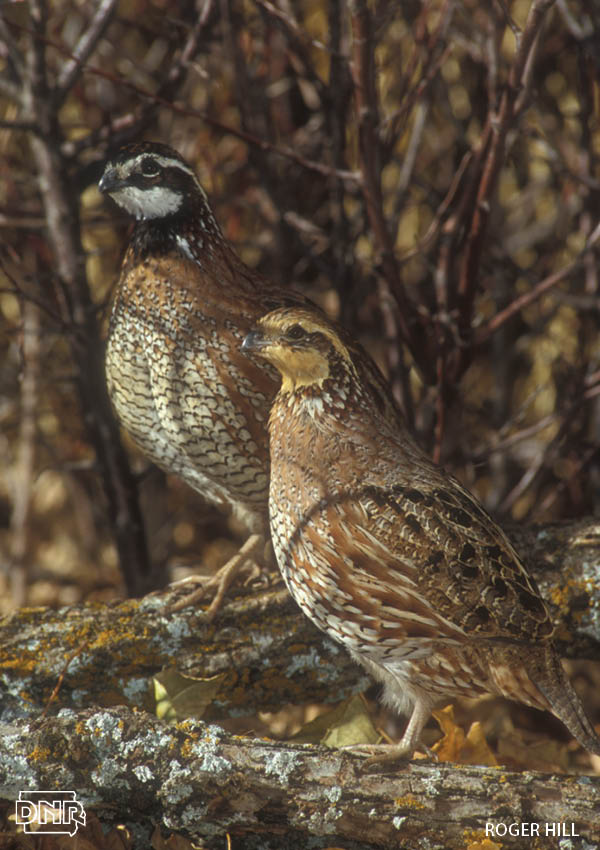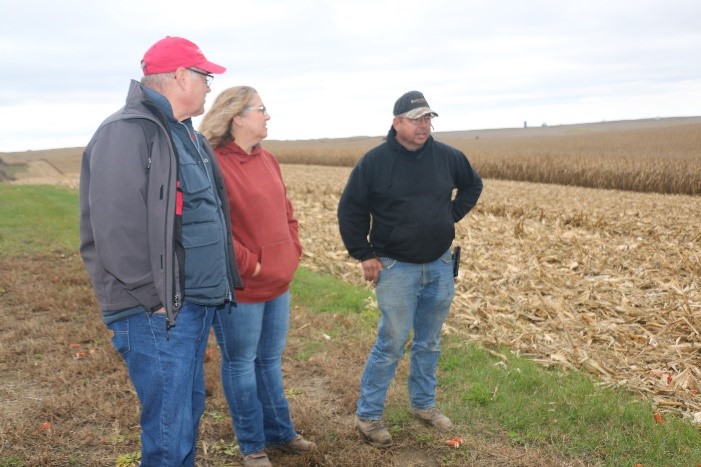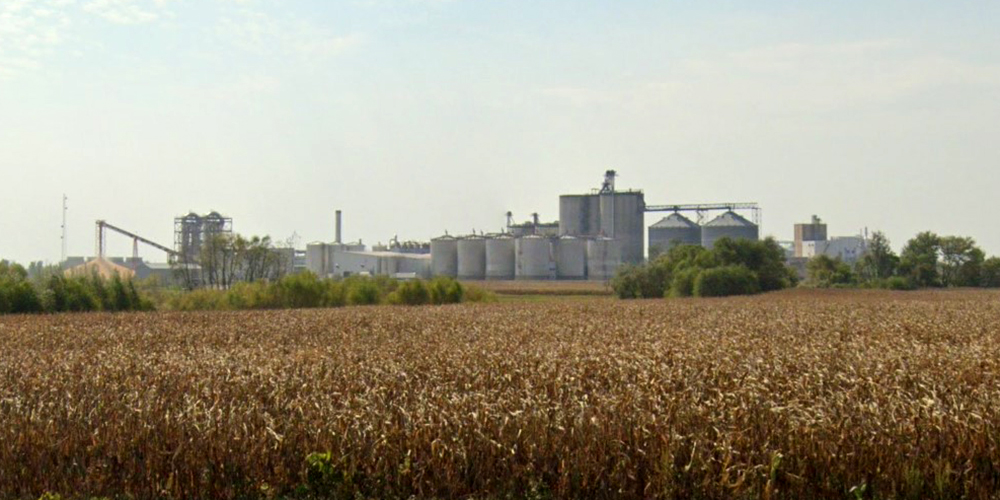CLICK HERE for the latest market quotes from the Iowa Agribusiness Network!
CLICK HERE for the latest market quotes from the Brownfield Ag News Network!
CLICK HERE for the latest market quotes from the Iowa Agribusiness Network!
CLICK HERE for the latest market quotes from the Brownfield Ag News Network!
(Radio Iowa) – An education center in central Iowa is taking steps toward becoming a year-round attraction. Living History Farms spokesperson Elizabeth Sedrel says they are building a Cultivation Center to replace the visitors center and give them more space. “New climate controlled year round exhibit space, some administrative offices and some new accessible amenities like a mother’s room, a family restroom and an adult changing station,” she says. “At the same time, we’re going to be renovating our current visitor center into a dedicated Learning Center for school groups for our classes and our day camp.” The farms were built in Urbandale back in 1970 to preserve some of Iowa’s early agriculture history.
“We have three working farm sites representing the indigenous Ioway in 1700, a pioneer family in 1850, and a farm family in the year 1900, We also have a recreated 1876 town of Walnut Hill,” Sedrel says. There are interactive activities at the farms. “At many of the sites they will meet historic interpreters who can explain what they’re doing and how people lived and work the land at that time,” she says. They recently broke ground to get the project underway. “Happily it does not interfere with guests touring the town or any of the farm sites. Once that building is done then we’ll be able to renovate the current visitor center, and we expect to hold a ribbon cutting for the whole new thing including a new picnic pavilion in 2026,” Sedrel says.
They’ve been raising six-point-two million dollars for the project, and Sedrel says they have hit 85 percent of that goal.
(Radio Iowa) – The wet spring is expected to impact the pheasant population in some areas of the state, but D-N-R wildlife biologist Todd Bogenshutz says Iowa’s quail should be okay. “I’m getting pretty positive reports on quail and so it could be that our quail numbers will go up,” he says. “I mean you know we’re on the northern fringe of the range so winter really affects our quail numbers probably more than anything and it was a pretty mild winter.”
Bogenschutz says that’s due in part to their background. “You know quail actually are native to the state and so they’re more adapted to our climate here than peasants,” Bogenschutz says.

bobwhite quail
He’ll find out more about both quail and pheasants during the annual roadside counts in August.
(Radio Iowa) – The Iowa Chapter of the Sierra Club is petitioning the EPA to remove a state agency’s authority to enforce the Clean Water Act. The group claims the Department of Natural Resources has failed to enforce the federal law for years. The petition says over 450 Iowa cattle feeding and industrial operations are dumping waste into waterways, despite expired permits.
Wally Taylor, the chapter’s legal chair, says the DNR has also failed to prioritize protecting the state’s highest-quality rivers and streams. “Many of the streams that should be top priority are down in levels three and four, which are the lowest priority,” Taylor says. “That includes ‘Outstanding Iowa Waters,’ which include trout streams in northeast Iowa.”
Waste permits must be renewed every five years, though he says some haven’t been renewed since the early 2000s. Taylor says while DNR funding has gone down over the years, he believes failure to enforce the Clean Water Act has been deliberate. “Over the years it’s been a lack of will,” he says, “and in the past few years, it’s been – I think – a definite intent not to enforce the Clean Water Act.”
Taylor adds that the Sierra Club has supported additional funding for the DNR in the past to make clean water enforcement more feasible.
(contributed by Grant Winterer, Iowa Public Radio)
Farm tenants and landowners are encouraged to attend August 7 in Atlantic
Atlantic, Iowa – Cass County Extension is hosting a farmland leasing meeting on Wednesday, August 7 at 2 PM, at the Cass County Community Center, 805 West 10th Street in Atlantic. The annual meeting is offered to address questions that landowners, tenants or other interested individuals have about leasing farmland. The average reported rate in the 2024 cash rental survey for the state is $279 per acre of corn and soybeans, which is the first time rates have not increased in five years. Topics covered during the meeting will include land values and cash rent trends, cost of production, methods for determining a fair rental rate, legislative updates regarding leases, and communicating with tenants or landlords.
Ann Johanns, a program specialist at Iowa State University Extension and Outreach, says “More than half of Iowa’s farmland is rented, and strong landlord/tenant relationships are important for the long-term viability of Iowa’s valuable farmland. While the trend in rental rates is fairly steady, individual agreements vary and attending a workshop is a great way to learn more or ask questions on specific aspects of farm lease arrangements.”
The 2.5-hour workshop is designed to assist landowners, farm tenants and other agri-business professionals by sharing information on current issues and topics related to farmland ownership, management and leasing arrangements. Attendees will gain a better understanding of current cash rental rate surveys and factors driving next year’s rents such as market trends and input costs. Each registrant will receive a 100-page workbook with resources regarding land leasing agreements such as surveys, sample written lease agreements and termination forms, along with many other publications.

Photo credit: Lisa Scarbrough
Registration for the August 7 meeting is $20 per individual or $30 per couple if sharing a book. Preregistration is encouraged for materials planning. To register contact the Cass County Extension Office by calling 712-243-1132 or email Kate Olson at keolson@iastate.edu.
Leasing meetings are being held across Iowa throughout the month of August, facilitated by farm management specialists with ISU Extension and Outreach. For out-of-state landowners or those unable to attend a meeting in person, a statewide online webinar will be offered on Monday, August 26 at 9:00 am. This meeting is available for a $20 registration fee, with virtual access provided to the Farmland Leasing Arrangements book. Visit the Ag Decision Maker events page to find other leasing meeting locations or register for the online meeting, at https://go.iastate.edu/AGDMEVENTS or visit the Ag Decision Maker home page at www.extension.iastate.edu/agdm.
The Ag Decision Maker website provides useful materials for negotiating leases, information on various types of leases, lease forms and newly updated Decision Tools.
(Atlantic, Iowa) – The last full day of fun and activities during the 75th Annual Celebration of the Cass County Fairgrounds is today (Monday), in Atlantic. Here’s a look at today’s schedule:
8-a.m. Beef Show
8-a.m. to 8-p.m. 4-H/FFA Exhibits open
9-a.m. Best of Iowa
11-a.m.-to-10-p.m. Inflatable Carnival, & Rotary Watermelon Feed
Noon Lunch Special Roast Beef Dinner at the 4-H Food Stand
2-p.m. Dairy Cattle Show
4-p.m. Building Awards
5:45-p.m. Parade of Champions & Bucket of Junk Fundraising Auction
6:30-p.m. Grand Champion Beef Selection
7:45-p.m. Livestock released
8-p.m. to 9-p.m. State Exhibits released.
TUESDAY, July 30th
8-a.m. Livestock Auction
8-a.m. to 9-a.m. Static Exhibits released.
See the full schedule HERE.
(Atlantic, Iowa) – The 75th Cass County Fair continues this weekend, in Atlantic. The schedule for Saturday and Sunday includes:
8-a.m. Sheep Show
8-a.m. to 8-p.m. 4-H/FFA Exhibits open
10-a.m. Pet Show
10-a.m. To 8-p.m. Mechanical Bull
11-a.m. To 10-p.m. Inflatable Carnival
11-a.m. Meat Goat/Dairy Goat Show
Noon Lunch Special Ham Balls or Lamb
Noon until 10-p.m. Commercial Booth Barns Open
Noon until 4-p.m. Family Fun Day
Noon Communication Events
1-p.m. Exotic Animals & Youth Water Fights
2-p.m. To 5-p.m. Atlantic Elks Bingo
3-p.m. Clover Kids Animal Show & Exotic Animals
5-p.m. Exotic Animals
6-p.m. Tractor Pull
SUNDAY, July 28
7:30-a.m. Swine Show
8:30-a.m. Tractor Ride
10-a.m. Poultry Show (Next to the poultry barn)
11-a.m. To 10-p.m. Inflatable Carnival
10-a.m. to 8-p.m. 4-H/FFA Exhibits open
Noon Special: Windsor Chop
Noon to 3-p.m. Decorator’s Showcase
Noon to 10-p.m. Commercial Booth Barns Open
1-p.m. Exotic Animals & Pig Pals Show
2:30-p.m. Pedal Tractor Pull
3-p.m. Exotic Animals
4:30-p.m. County Fair Church Service
5-p.m. Exotic Animals & 75th Fair Grounds Celebration Cake Social
6:30-p.m. Cow /Calf Feeder Calf Show
7-p.m. 75th Fair Grounds Celebration & Community Photograph (Grandstand event)
A reminder: The Fair runs through July 30th, and concludes with the Livestock Auction at 8-a.m. Tuesday. The Cass County Fair is always FREE: No entry fee, no charge to park, and no charge to view the exhibits and entertainment. There’s also great Fair food at the 4-H and FFA Foodstands, along with the Chuckwagon, each of which have a variety of delicious hot, and refreshingly cold, food and drinks to choose from.
See the full schedule HERE.
DES MOINES, Iowa, July 26, 2024 – U.S. Department of Agriculture (USDA) Rural Development State Director in Iowa Theresa Greenfield today (Friday) announced that USDA is investing $806,660 in 27 projects across the state to lower energy bills, expand access to clean energy, and create jobs for Iowa agricultural producers and rural small business owners with funding through the Rural Energy for America Program (REAP). The REAP project grants are part of a larger nation-wide announcement.
REAP grants in Iowa include:
-L&K Tabke Farms, LLC, which received $164,250 in funding to install three 15 kilowatt wind turbines at its livestock production operation in Moville, in Woodbury County. The project will realize $11,964 per year in savings and will replace 115,560 kilowatt hours per year (100 percent of previous use), which is enough electricity to power 11 homes.
-Kluver Chiropractic, PC, in Mount Vernon in Linn County, received $10,500 in grant funding to install a 6.3 kilowatt solar array. The project is expected to save $1,409 per year. It will replace 7,478 kilowatt hours (100 percent of business energy usage) per year, which is enough energy to power one home.
-and, Cornelius Seed Corn Co., a corn farm operation near Bellevue, in Jackson County, received $14,279 in grant funding to install a new LED lighting system. The project is expected to save $3,037 per year. It will save 31,306 kilowatt hours per year, which is enough energy to power two homes.
A complete list of all REAP projects can be found online.
(Des Moines, Iowa – Iowa DNR News) – Hemorrhagic disease, commonly referred to as EHD or Bluetongue, has been impacting deer in Iowa for over a decade, with severe outbreaks occurring in 2012, 2013, 2019, and 2023. As a way to better understand disease impacts, the Iowa Department of Natural Resources (DNR) has created an online tool where hunters and landowners can report dead deer resulting from hemorrhagic disease outbreaks.
The new reporting tool, plus an annual dashboard, is linked off the Deer Hunting and Deer Health Webpage (www.iowadnr.gov/deer). Hemorrhagic disease has previously gone under-reported and this new tool will help to simplify the process, as well as improve the accuracy of the number of deer and local areas impacted. Submitting these reports assists the DNR in understanding and managing Iowa’s deer populations.
Characteristics of hemorrhagic disease are:

Deer are often found near water sources where they will try to drink away a burning sensation that is a symptom of hemorrhagic disease. Image courtesy of the Iowa DNR.
Outbreak severity has varied from year to year and there is no effective treatment or known prevention for wild deer. Hemorrhagic disease typically doesn’t impact county deer populations uniformly, meaning that deer on one property may experience a severe outbreak while deer on a neighboring property do not.
Generally, deer populations in areas where outbreaks occurred have recovered to near normal levels within 2-3 years with no additional management actions. However, counties with low or declining deer populations that experience an outbreak may need additional help to facilitate recovery.
(Atlantic, Iowa) – The 75th Cass County Fair continues in Atlantic. Today’s schedule includes:
8:00am Rabbit Show
9:00am Horse Show
9:00am – 12:00pm FFA Floriculture Speciman Enter
10:00am – 8:00pm 4-H/FFA Exhibits Open
11:00am – 10:00pm Inflatable Carnival
12:00pm – 10:00pm Commercial Booth Barns Open
11:00am Dog Show
Noon lunch Special: Chicken & Noodles
3:30pm Livestock Judging Contest
2:00pm – 8:00pm Mechanical Bull
5:30pm Friday Evening Building Showcase
6:30pm Mutton Busting (Grandstand event)
8:00pm Bull Ride/Rodeo (Grandstand event)
The Fair runs through July 30th, and concludes with the Livestock Auction at 8-a.m. Tuesday. The Cass County Fair is always FREE: No entry fee, no charge to park, and no charge to view the exhibits and entertainment. There’s also great Fair food at the 4-H and FFA Foodstands, along with the Chuckwagon, each of which have a variety of delicious hot, and refreshingly cold, food and drinks to choose from.
See the full schedule HERE.
(Des Moines, Iowa) – A report from the Iowa Department of Natural Resources shows an ethanol-producing facility in northeast Iowa expelled excessive pollutants into the air for several years that can cause cancers and other health effects. The Iowa Capital Dispatch reports the DNR recently issued an administrative order with regard to the POET Bioprocessing plant near Shell Rock. The Order says “Actual harm to the environment and public health likely occurred” at the facility, which makes about 140 million gallons of ethanol each year, along with other products from the leftover materials of the fuel production. The excessive pollution was tied to one of those additional products: a protein ingredient for animal feed.
The facility’s previous operator, Flint Hills Resources, installed the equipment that is used to extract the protein and began operating it in July 2020, the DNR order said. However, part of the system lacked sufficient pollution controls, which was discovered by POET in August 2023. POET had purchased the facility about two years earlier, but did not sample the emissions. Mark Fields, a unit leader for the DNR’s Air Quality Bureau, said Flint Hills had underestimated the amount of pollutants in the ethanol-production leftovers that are used to produce the protein. Those pollutants were then expelled during the protein processing.

The POET facility near Shell Rock produces about 140 million gallons of ethanol each year and other products. (Photo courtesy of Google Earth)
Fields said the issue was discovered with a similar system in another state, and POET shut down the production line and notified the DNR. The company later routed those emissions into an existing pollution-control system at the plant and fixed the problem. But emissions tests after the production line was reactivated revealed the extent of the excessive pollution in the previous years: Its volatile organic compounds emissions were 27 times its permitted limit, and emissions of a hazardous, cancer-causing compound — acetaldehyde — were nearly nine times the limit.
POET agreed to pay a $10,000 administrative fine, the DNR order said. It also will pay nearly $43,000 in fees that it owed the state for its under-reporting of emissions in 2021 and 2022.